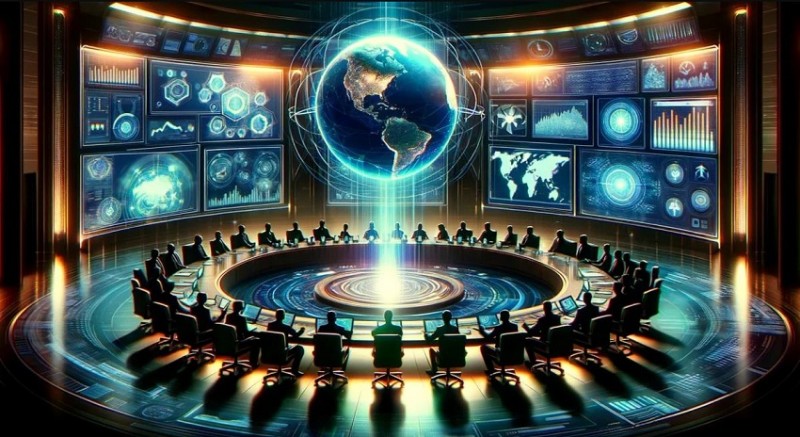
In a groundbreaking move, major tech companies have joined hands to combat the misuse of artificial intelligence (AI) in disrupting democratic elections worldwide. This significant pact, announced at the Munich Security Conference on Friday, includes big names like Adobe, Amazon, Google, IBM, Meta, Microsoft, OpenAI, TikTok, and Elon Musk's X.
The focus of this collaborative effort is to tackle the threat posed by AI-generated deepfakes, which can deceive voters by manipulating images, audio, and video. While the agreement is largely symbolic, it marks a notable step toward addressing concerns regarding AI misuse in politics. Additionally, twelve other companies, including Anthropic, Inflection AI, ElevenLabs, Arm Holdings, McAfee, and TrendMicro, have also joined the initiative.
Nick Clegg, President of Global Affairs at Meta, stressed the collective responsibility in dealing with AI technology's potential misuse, stating, "No single tech company, government, or civil society organization can tackle this technology's advent and its potential nefarious use alone."
The accord aims to combat the spread of realistic AI-generated content that alters the appearance, voice, or actions of political candidates, as well as the dissemination of false information about the electoral process. However, the companies involved are not committing to an outright ban on deepfakes. Instead, they are focusing on detecting and labeling deceptive AI content, with an emphasis on swift and proportionate responses.
Rachel Orey, Senior Associate Director of the Elections Project at the Bipartisan Policy Center, recognized the companies' interest in preventing their tools from undermining free and fair elections. However, she cautioned that the voluntary nature of the agreement and its vague commitments may invite scrutiny.
The agreement encourages platforms to consider context and protect various forms of expression, including educational, documentary, artistic, satirical, and political content. It also calls for transparency in company policies and aims to educate the public on recognizing and avoiding AI-generated fakes.
This announcement comes at a crucial time, as over 50 countries are set to hold national elections in 2024. Recent incidents of AI-generated election meddling, such as robocalls mimicking U.S. President Joe Biden's voice and AI-generated audio impersonating political candidates, underscore the urgency of addressing this issue.
Despite the positive response to the agreement, some advocates question its effectiveness. Lisa Gilbert, Executive Vice President of the advocacy group Public Citizen, believes the agreement falls short and urges AI companies to withhold technologies like hyper-realistic text-to-video generators until adequate safeguards are in place.
ISRO Set To Launch INSAT-3DS Meteorological Satellite Today: Know Launch Time, Objectives, and More
ISRO's YUVIKA Program 2024: Enrollment Opens for Class 9 Students; How to Sign Up and More Details